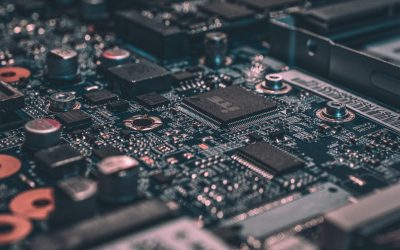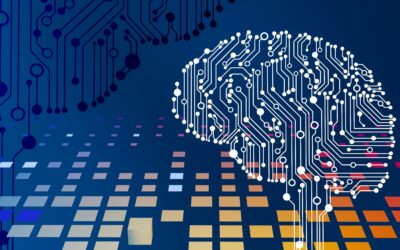FACT: Business Insider Intelligence reported that spending on AI in healthcare is projected to grow at an annualized 48% between 2017 and 2023. The idea of healthcare making changes and advances due to robotic creations is not new.
For decades engineers have been working to find ways in which technology can alter the healthcare industry. From cutting edge machine learning developments to bionic prosthetics, healthcare as we know it is shifting. While we can’t imagine a world without human healthcare workers, as AI and robo-technologies increase, the abilities of doctors to save lives also should increase.
We’ve outlined a few ways we’re seeing AI and robotics pave the way for a new type of healthcare… but first, what is artificial intelligence and how can be best used in healthcare?
Quickly each of us can imagine how robotics would aid doctors inside an operating room, but what is AI and how can it be of assistance in the healthcare world? Cut and dry, machine learning has the potential to provide data-driven clinical decision support (CDS) to physicians and hospital staff. Machine learning, a subset of AI, is designed to identify patterns, use algorithms, and data to give automated insights to healthcare providers.
Now, on to a few key ways we’re already seeing AI and robotics pave the way for a new type of healthcare…
Accuracy rates within surgeries are increasing.
Whether we like to admit it or not, doctors do get tired, ware out, or have accidents during surgery. Alike, none of us are comfortable saying “Alexa, give me a knee replacement” … the accuracy AI and robotics can provide in a healthcare setting is matchless to human ability. Robots don’t run on coffee, need sleep, or get weary and perform at a lower status. Beyond the accuracy robotics can provide in medical surgeries and interventions, machines can scan thousands of cases and look for correlations between hundreds of variables, some of which are not even listed in current medical data available to doctors today.
For example, one operation on a patient in Hong Kong could impact how a robot performs on a patient in Texas. Doctors who never would speak about patient cases and outcomes could now automatically be collaborating with the help of robotics and machine database technology. The knowledge base created from AI within robotics only adds a greater benefit to the accuracy of its performance.
Daily supports are being enhanced to ensure better care.
While a robot may not be able to fluff your pillow (yet!), they can perform many functions like engaging a sick or elderly patient to help them feel less lonely. Today conversational robots can help patients remain positive, remind them to take their medicine and perform simple routine check-ups like temperature, blood pressure, and sugar levels. What once was completed by a nurse or hospital tech can now be done robotically. As AI and robotics are developed more, the future of supportive care may drastically change!
Smart prosthetics are providing a new wave of hope for so many!
Talking AI and robotics from another angle brings us to the application of smart prosthesis. Bionic limbs are being built with advanced sensors that make them sometimes more reactive and accurate than the original body part lost, adding the possibility to cover these with bionic skin and connect them to the person’s muscles takes prosthetic healthcare to an entirely new world of opportunities. Image a world where prosthetics are controlled through voice commands… the future of prosthetics is filled with hope for so many!
Continued advancement
Each day we use many “smart” technology systems without realizing these systems are powered by machine learning. Our workplaces, cars and homes are full of AI and robotics in some form or another. As each fo these developments continue in healthcare, studies show already it will be for the better.










